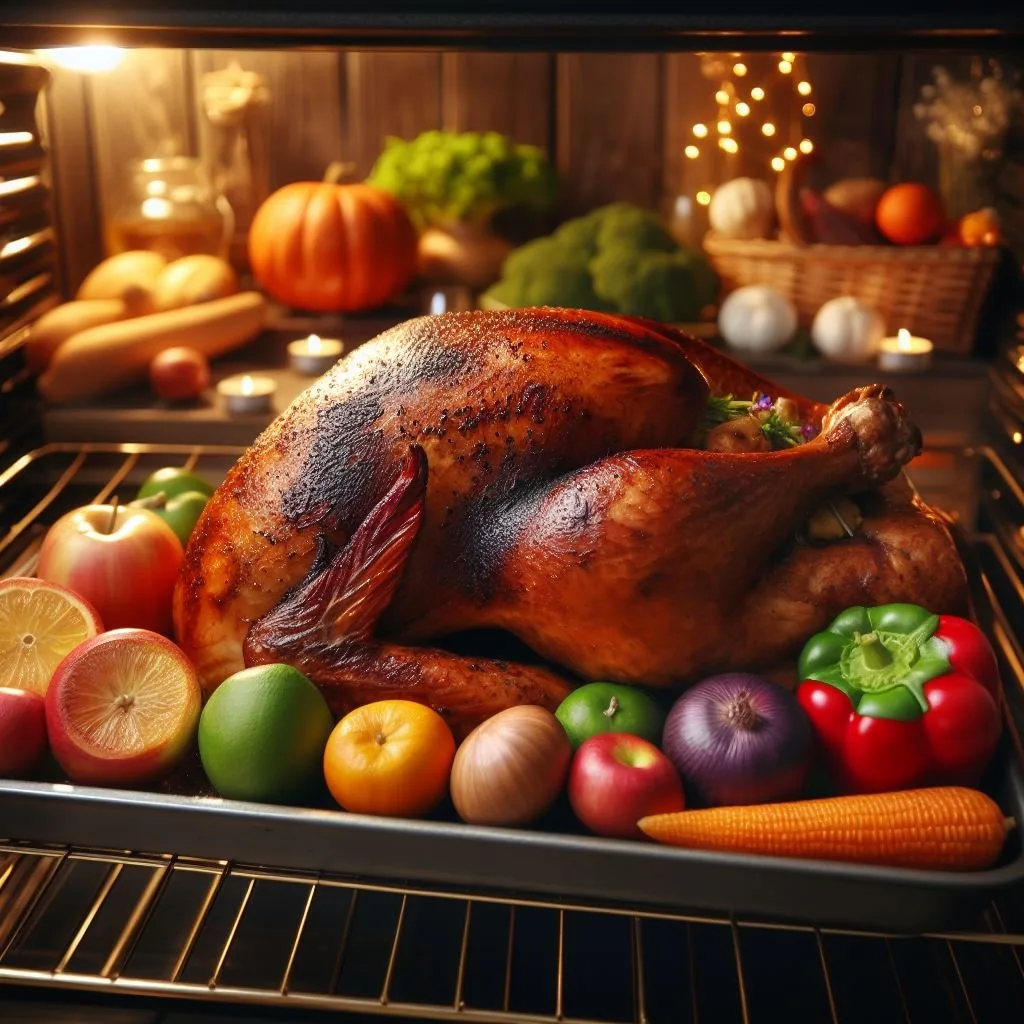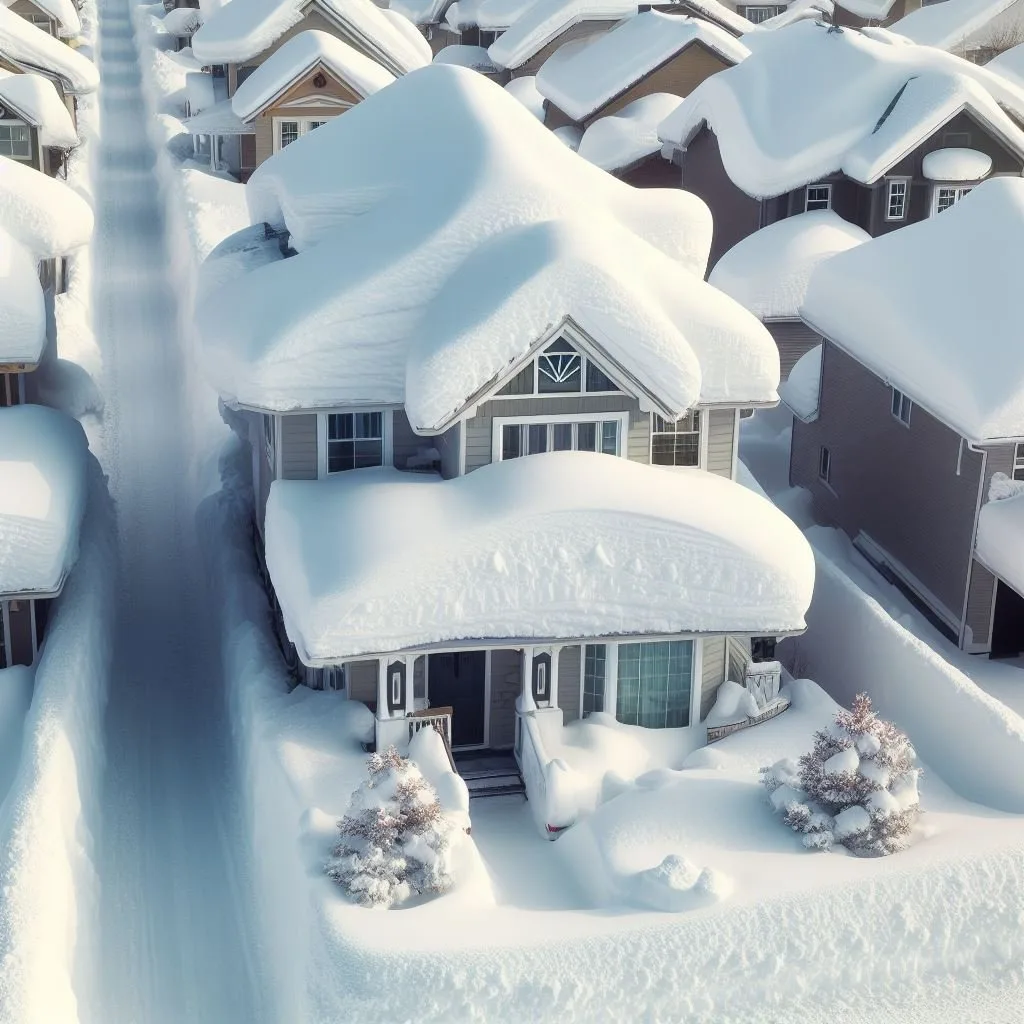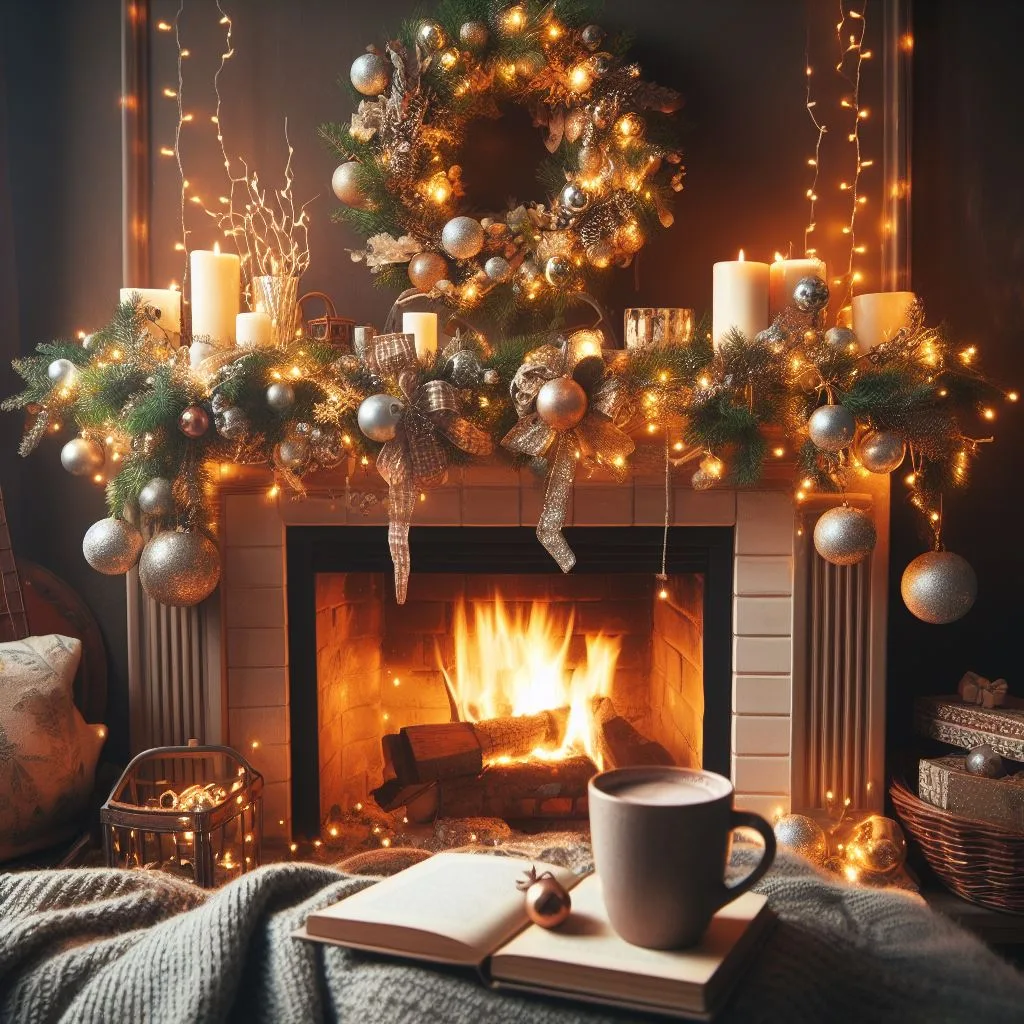The holiday season brings the delightful smell of delicious foods, the sparkle of twinkling lights, and the joyful sound of festive carols. Yet, with that brings cold weather, fire hazards, and additional safety concerns!
With the stakes high and the celebrations going strong, it’s important to be prepared. In this article, we provide you with holiday safety tips to ensure you are prepared for the holiday season.
How to Prepare Your Home for Cold Weather
Holidays mean vibrant decorations and memorable gatherings, but often overlooked is the importance of general safety. During the holidays, many home-related accidents tend to occur. Thus, it’s not just about setting the scene but also ensuring it’s safe.
To ensure a safe and enjoyable holiday season, it’s important to keep a few things in mind. First, make sure to securely fasten all decorations to prevent them from causing any accidents. Additionally, if you have a real tree, ensure that it is fresh and not dry, as a dry tree can become a fire hazard. Finally, use our holiday prep checklist to get ready for the cold weather and holiday season.
Holiday Cooking Safety Tips
The irresistible scent of holiday meals can bring joy and warmth to any home. However, with the kitchen being a high-traffic area during holiday gatherings, it’s crucial to prioritize safety.

- Never Leave Cooking Unattended: It’s easy to get distracted by the festivities and having loved ones around but remember, unattended cooking is a leading cause of kitchen fires. Always stay in the kitchen when you have something on the stove and use a timer for dishes in the oven.
- Keep a Clutter-Free Kitchen: Clear your cooking area of any flammable items such as dish towels, paper products, or oven mitts. This will help prevent any accidental fires.
- Have a Fire Extinguisher Handy: A fire can escalate quickly. Having a fire extinguisher in an easily accessible location can help control a situation before it gets out of hand.
- Avoid Loose Clothing: Loose sleeves or clothing can easily catch fire from a stove burner. Wear tight-fitting clothes or roll up your sleeves while cooking.
- Be Cautious with Hot Oil: If you’re deep frying or sautéing, be cautious. Hot oil can splatter and cause burns. Also, never put water on an oil fire; it can cause the fire to spread.
- Practice Safe Food Handling: Ensure all food is cooked to the correct temperature to prevent foodborne illnesses. Use a food thermometer for accuracy.
Christmas Light Safety: Brightening Your Home Safely
Decorating your home with Christmas lights can truly bring the holiday spirit to life. However, it is essential to keep safety in mind while doing so. Here are some tips to ensure you safely brighten up your home:
- Check Your Lights: Before you start hanging lights, inspect them thoroughly for any broken or cracked sockets, frayed wires, or loose connections. Discard damaged lights; they are a potential fire hazard.
- Outdoor Lights: Make sure your lights are certified safe for outdoor use. Look for the UL (Underwriters Laboratories) safety certification on the packaging.
- Use Clips, Not Nails: When hanging lights, avoid nails, staples, or screws that can damage the wiring. Instead, use insulated holders or plastic clips.
- Don’t Overload: Avoid plugging in too many strands of lights into a single outlet or extension cord. This can overload the circuit and cause a fire hazard.
- Turn Off Lights: If you’re not using a timer, turn off the lights before going to bed or leaving the house. Unattended lights can overheat and cause a fire.
- LED Lights: Consider switching to LED lights. They use less energy and don’t generate as much heat as traditional incandescent bulbs, making them safer.
If you are looking for more information on holiday fire safety, click here to learn more.
Avoiding Winter Roof Damage

Winter weather can wreak havoc on your roof during the holiday season, the most exposed part of your house. Snow and ice, specifically, can cause severe damage if not appropriately managed. As a preventative measure, it’s essential to ensure that your roof is in good condition before the winter season starts.
Regular inspections can help identify potential weak spots like missing or damaged shingles. Consider professional assistance if needed, as they can thoroughly check for internal damage that might not be visible to an untrained eye.
Remember to remove excess snow. A roof rake with a long handle can be used to eliminate snow build-up. However, be careful not to damage the roof’s surface. If the snow is too hard to remove, consider hiring a professional snow removal service.
Keep your gutters and downspouts clean. They play a vital role in diverting water away from your house. If they are blocked, water can back up, freeze, and cause damage. Ensure they are free of leaves and other debris, especially during the fall.
By following these steps, you can help prevent winter roof damage, protect your home, and ensure a cozy and worry-free holiday season.
Preparing for Cold Weather Damages: Ice Dams, Power Outages, and Hailstorms
Cold weather, especially a polar vortex, can bring about various challenges, making it crucial to prepare for potential damages like ice dams, power outages, and hailstorms.
Combatting Ice Dams
During the winter, keep an eye out for ice dams. These are ridges of ice that form at the edge of your roof and prevent melting snow from draining off. The water can then leak into your house, causing significant water damage.
To prevent ice dams, ensure that your attic is well insulated. This will prevent heat from inside your home from escaping to the roof and melting the snow.
Besides ensuring your attic is well insulated, consider installing heated cables along the eaves of your roof. This can help melt snow before it can form into an ice dam. Regularly clear your roof of snow to prevent build-up.
Preventing Frozen Pipes
During winter, the frigid temperatures can lead to the unfortunate freezing of water in your pipes. This can result in blockages that, if left unattended, may burst, and cause substantial water damage.
To prevent frozen pipes, measures like insulating your pipes, ensuring warm air circulates within your home, maintaining a comfortable indoor temperature, and allowing your faucets to drip are all effective ways to ward off the occurrence of frozen pipes. By implementing these precautions, you can protect your plumbing system and avoid the potential headaches of dealing with costly repairs.
Preparing for Power Outages
Power outages are common during extreme cold weather conditions and can leave you without heat when you need it most. Have flashlights, batteries, and candles readily available in case of power failures. Consider investing in a generator to provide temporary power to essential appliances. If you think there’s a chance of an outage, keep your mobile devices charged, so you have a lifeline during power outages.
Protecting Against Hailstorms
Hailstorms can cause extensive damage to your home and vehicles. To protect your roof, consider impact-resistant roofing materials. Keep your vehicles in a garage or under a carport whenever possible. If a hailstorm is imminent, cover windows and other vulnerable areas to prevent glass damage.
Fire Safety During Holiday and Winter Seasons
The holiday and winter seasons bring about a unique set of fire safety concerns that everyone should be aware of to ensure a safe and joyous time. As we move indoors to stay warm, the use of fireplaces, candles, and space heaters increases, requiring extra precautions.
Fireplace Safety

Fireplaces provide both warmth and a cozy feel during the winter and around the holidays. However, they must be used with care.
Always keep a metal or heat-tempered glass screen in front of the fireplace to prevent sparks or embers from jumping out. Burn only dry, well-seasoned wood to avoid excessive smoke and creosote buildup. Never leave a fire unattended, and make sure it’s completely extinguished before going to bed or leaving the house.
To maintain the safety of your home, it’s important to have your chimney inspected and cleaned by a professional on an annual basis. This regular maintenance will help identify and prevent any blockages or creosote buildup, which can potentially lead to a chimney fire.
Space Heater Safety
Space heaters are a common means of supplementing heat during the cold months. Remember, these devices should be used for temporary heating and not left unattended or used while sleeping. Always keep a three-foot clearance from anything that can burn, including furniture, curtains, and rugs. Make sure to plug your space heater directly into an outlet and not an extension cord, as this can lead to overheating.
Candle Safety
Candles contribute to the holiday atmosphere and are especially common during the winter months. However, they pose a fire hazard if not used responsibly. Never leave burning candles unattended or sleep in a room with a lit candle. Keep candles out of reach of kids and pets, and away from flammable items like curtains, furniture, and holiday decorations.
Other options include using flameless candles, which can look and smell like real candles but are much safer.
Remember, having functioning smoke alarms drastically increases your chances of surviving a fire. Test your smoke alarms monthly and replace batteries as needed.
Damage Restoration Services
The holidays are a season of joy, but that joy is best enjoyed with safety in mind. By following these pre-holiday safety tips, you not only guarantee a wonderful celebration but also peace of mind.
If you do have water, storm, or fire damage during the winter or holiday season, make sure to contact the professionals at Jenkins Restorations to restore your property and restore your life.
